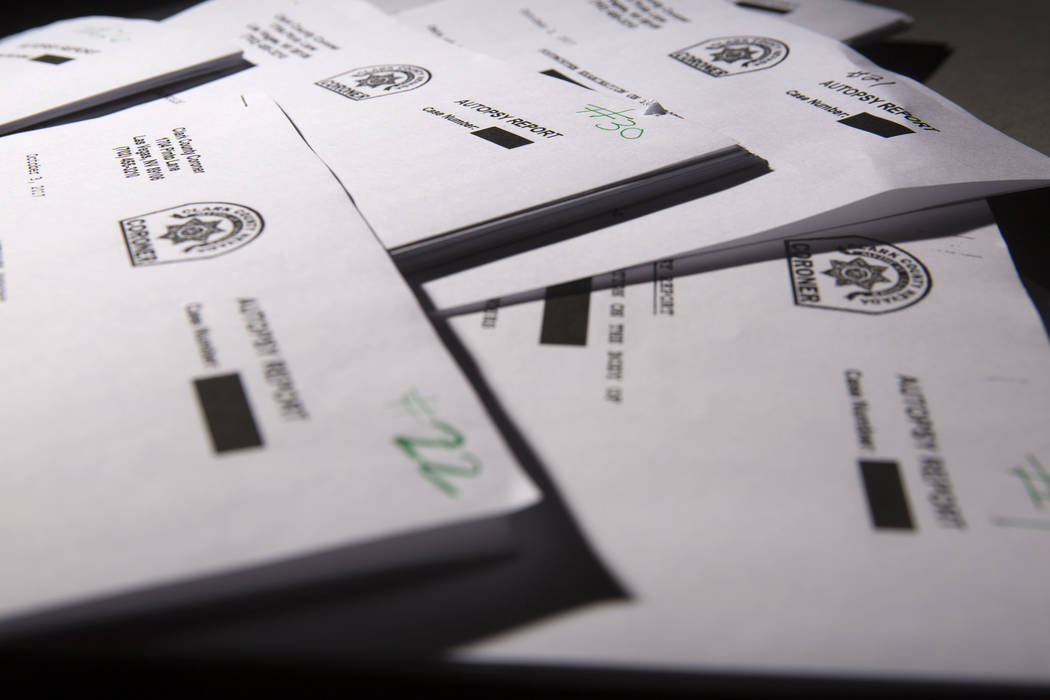Bill vital to promoting government transparency
As the Legislature careers toward a June 3 adjournment, budget issues will dominate in Carson City. But lawmakers shouldn’t ignore a number of other important proposals that could benefit the state and its taxpayers. One of these measures is Assembly Bill 371.
The 2019 session will likely be a mixed lot when it comes to public records. An awful bill that would prevent Nevada taxpayers from examining vital information about the public pension payouts they fund has already passed the state Senate and would be a heavy drag on the debit side of the ledger if it becomes law. On the other hand, AB371 — proposed by Assemblyman Skip Daly, D-Sparks — would represent a step forward in the battle to ensure the public has access to the information collected and compiled by those entrusted to do their business.
As originally written, AB371 was an effort to overturn a 1990 Nevada Supreme Court decision, Donrey v. Bradshaw, that many bureaucrats calculatedly misinterpreted as giving them wide leeway to use a “balancing test” — involving the public’s right to know against the government’s right to secrecy — to conceal public records. In fact, the balancing test was simply what the justices used to determine a police investigative record that was by law confidential should be made public.
Assemblyman Daly’s proposal would have sent a clear message to state and local agencies that the law means what it says: The release of government documents is not subject to a “balancing test” or any other act of bureaucratic discretion. Unless a record is specifically exempted from the public records statute, it shall be available for inspection.
But as Richard Karpel, director of the Nevada Press Association, noted last month, AB371 prompted “horror stories from government representatives about the hell that would break loose” if they were required to simply follow the Nevada Revised Statutes. The response prompted an overhaul of the bill, although it remains an important piece of legislation for those interested in government openness and accountability.
As revised, AB371 requires certain governments and public agencies in Clark, Douglas, Elko, Washoe and Carson City counties — along with certain cities, including Las Vegas and Henderson — to compile reports on public records requests over a 120-day period early next year. The report must include the specific reason for any denial of such a request by a government agency, and all of the information compiled will be forwarded to the Legislature.
The intent, of course, is to take an analytical dive into the details of how Nevada’s public sector responds to legitimate inquiries about the people’s business. The findings could provide lawmakers in 2021 with the impetus to more aggressively tackle the problem of government agencies that obfuscate on or ignore records requests.
Could some agencies try to game the system by ordering compliance during the four-month window only to revert to stonewalling taxpayers once it has closed? Perhaps. But that shortsighted approach would simply provide further evidence of the need for lawmakers to act.
Those who conduct the people’s business have a responsibility and obligation to act in the best interest of the taxpayers. Not only does transparency form the foundation for boosting public trust in a healthy democratic republic, it is integral to the promotion of government efficiency and accountability and an important defense against corruption and malfeasance.
AB371 emerged from the lower chamber by a 31-9 vote. The Senate should follow suit and deliver the measure for Gov. Steve Sisolak’s signature. The principles guiding its intent remain crucial for empowering Nevadans to determine the course of the public agencies that serve them.





